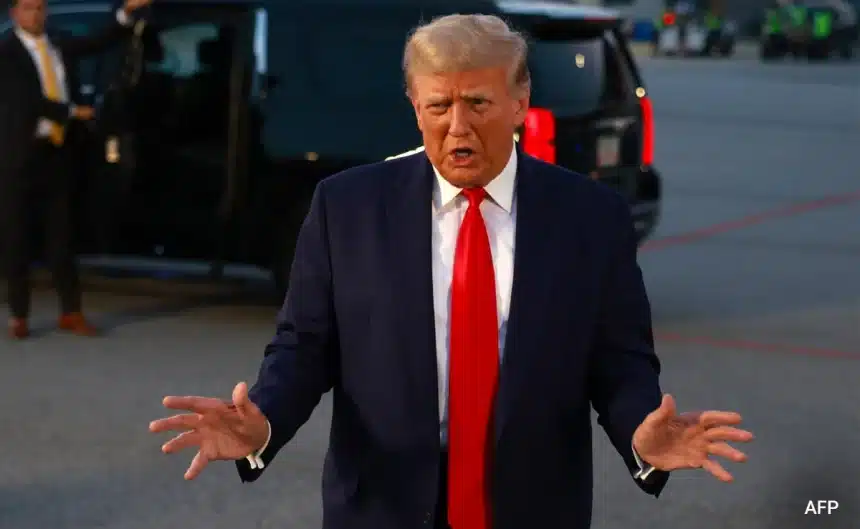A judge has determined that the court proceedings in the Georgia election fraud case against former US President Donald Trump and his co-defendants will be livestreamed.
Fulton County Superior Court Judge Scott McAfee also stated that the trial will be live-streamed on YouTube.
Mr. Trump is one of 19 persons charged with plotting to change the outcome of the 2020 election in the United States.
He has entered a not guilty plea and waived his right to appear in court next week.
Mr Trump surrendered to the Fulton County Jail in Atlanta last week and had his mugshot taken.
He has constantly denied any misconduct and characterized the case as politically motivated.
Mr Trump is facing 13 accusations, including racketeering, for allegedly influencing Georgia authorities to overturn the results of the state’s 2020 presidential election.
Mr Trump stated in a court filing on Thursday that he “fully understands” the nature of the claims and his entitlement to appear in court.
“Understanding my rights, I do hereby freely and voluntarily waive my right to be present at my arraignment on the indictment and my right to have it read to me in open court,” the signed document says.
Mr Trump, the current Republican presidential frontrunner, has appeared at each of his three previous arraignments, where charges are filed against a defendant.
He was obligated to do so for the lawsuits in New York and Florida, but he chose not to request a virtual appearance for a separate case in Washington, DC.
There was strong security in all three instances, as Trump fans and counter-protesters gathered near the courthouses.
Mr Trump surrendered and was arraigned in his federal court cases at the same time, resulting in his high-profile courtroom appearances. In Georgia state court, however, a defendant’s surrender and arraignment are normally held separately.
According to Brian Tevis, an Atlanta attorney who represents one of Mr Trump’s co-accused, Rudy Giuliani, “99% of the time” defendants who are given the opportunity to choose to forego their arraignment.
Georgia State University law professor Clark Cunningham stated that the ruling is “usually non-controversial.”
“Mr Trump fully knows the charges against him,” he said. “That’s the main purpose of the arraignment, to read the charges to the accused, and [to enter] the person’s plea. So he doesn’t need to be there, he knows what they are.”






